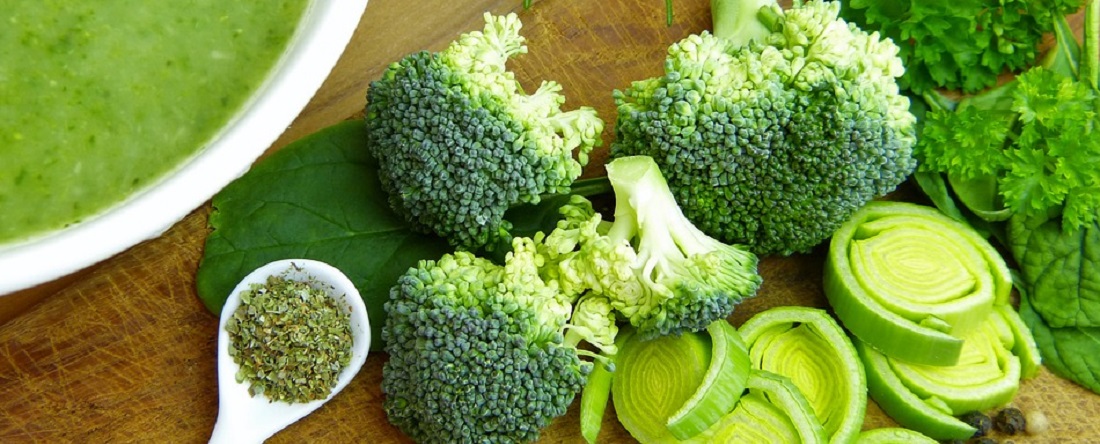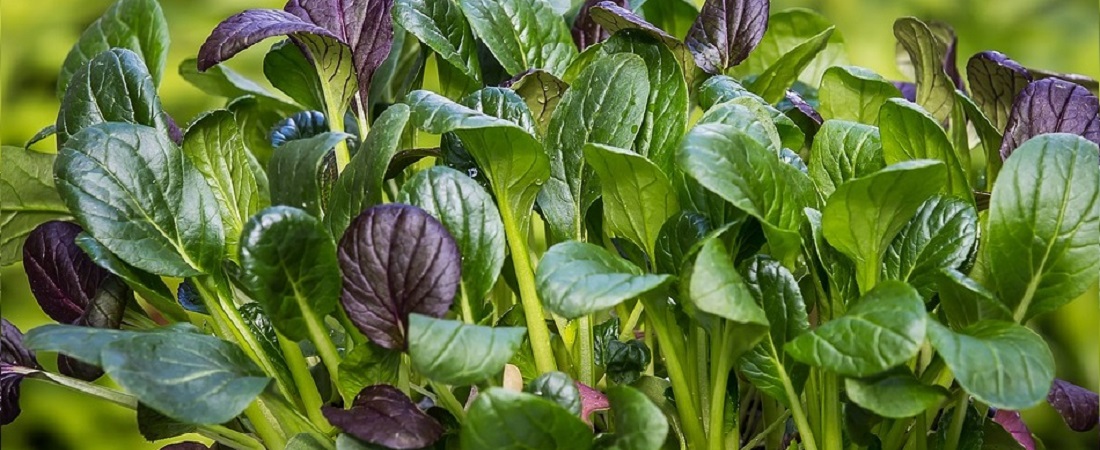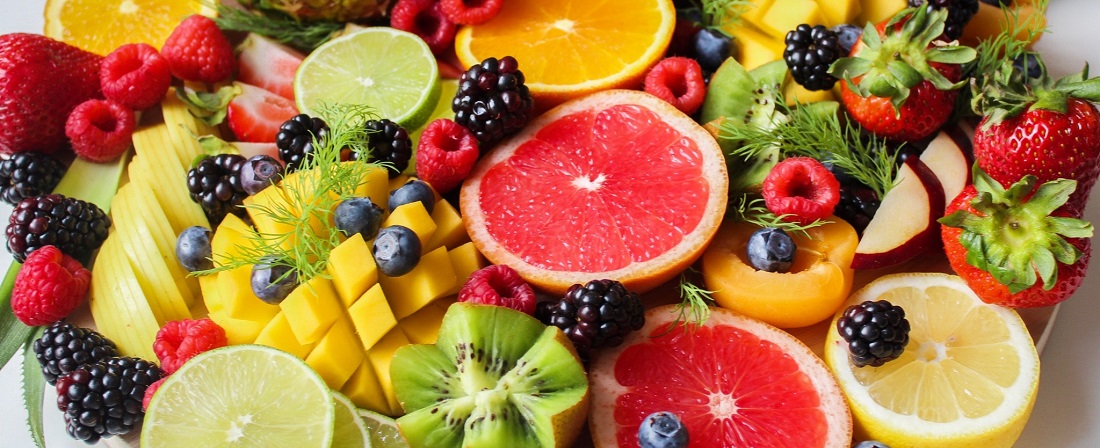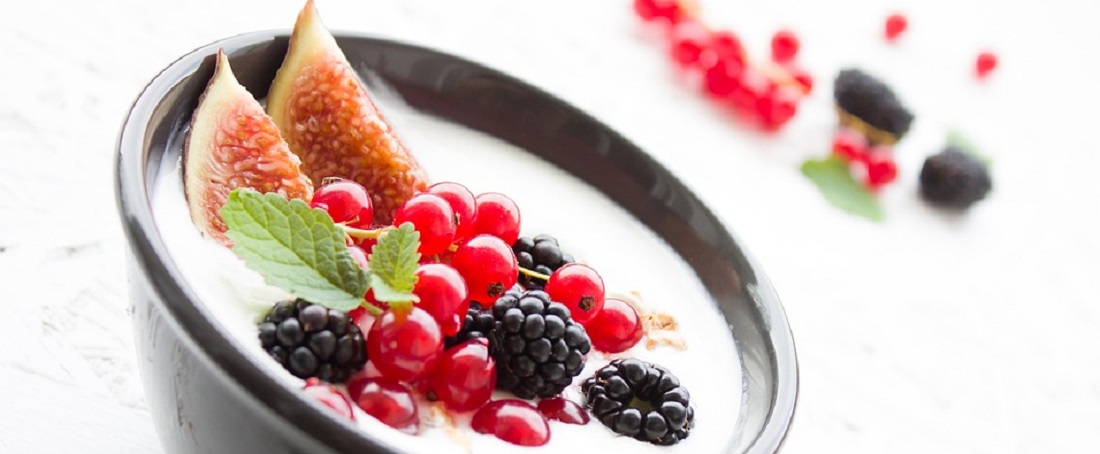IMMUNE SYSTEM - LIFESTYLE TIPS, VITAMINS, AND 16 FOODS TO BOOST YOUR IMMUNE SYSTEM NATURALLY
Your body's immune system acts like a protective shield, defending you against illnesses and infections, and aiding in your recovery from injuries. When your immune system is strong, it's like having a powerful army on your side. But when it's not strong enough, viruses and germs can take advantage and make you unwell.
Our immune response is also influenced by our age. Our immune system weakens as we age, making us more susceptible to infections. This is why older individuals are at a higher risk of contracting infectious diseases and facing fatal outcomes compared to younger individuals.
But maybe it is possible to intervene in this process in order to strengthen your immune system?
It's definitely possible to enhance your immune system, which is fantastic! Just remember, it's a significant undertaking since the immune system is a complex system, not a single entity.
For your immune system to function optimally, it requires harmony and balance. Taking care of your entire body and soul is essential to boosting your immune system. Check out these 13 tips to help you achieve that.
13 Healthy Ways to Strengthen Your Immune System
Boost your immune system with these 13 healthy habits.
It's crucial to start by adopting a healthy lifestyle and adhering to overall good health practices. Your body functions optimally, including your immune system, when you shield it from external dangers and nurture it with healthy living strategies outlined in the table below.
1. Don`t smoke
2. Eat fruits and vegetables
- Citrus fruits
- Grapefruit
- Oranges
- Tangerines
- Lemons
- Limes
- Clementines
- Red bell peppers
- Broccoli
- Garlic
- Ginger
- Spinach
- Yogurt
- Almonds
- Turmeric
- Green tea
- Onion
- Papaya
- Kiwi
- Poultry
- Sunflower seeds
- Shellfish such as crabs, clams, lobsters and mussels
3. Exercise regularly
4. Maintain a healthy weight
5. Get adequate sleep
6. If you drink alcohol, drink only in moderation
7. Try to minimize stress, you may find help in:
- Meditation
- Yoga
- Acupuncture
- Talk therapy
- Art therapy
- Exercise
- Eating healthfully
8. Moderate exposure to sunlight
9. Probiotics that keep you healthy:
- Lactobacillus acidophilus
- Lactobacillus rhamnosus GG
- Saccharomyces boulardii
- Bifidobacterium bifidum
- Bacillus coagulans
10. Practice good hygiene
11. Laugh
12. Take vitamins such as:
- Zinc
- Selenium
- Iron
- Copper
- Folic acid
- Vitamin A
- Vitamin B6
- Vitamin C
- Vitamin E
- Vitamin D
13. Cold water swimming
1. Don`t Smoke
Smoking isn't just harmful to your health, it can also weaken your immune system. Take a look at the list of health risks related to light and intermittent smoking:
- Heart disease caused by elevated blood pressure and arteries blocked by cholesterol-weakened aorta (an aortic aneurysm).
- Early death from heart disease
- Cancer of the lung, esophagus, stomach, and pancreas.
- Infections of the respiratory system
- Conception may be delayed for women, and men may have decreased sperm function.
- Healing from torn cartilage and other injuries may take longer.
- The clouding of the lens in the eye is known as a cataract.
- Amplified frailty in aging men and women.
- Decreased health-related quality of life.
2. Diet High In Fruits And Vegetables - 16 Strong Immune System Boosters
Nourishing your body with certain foods can enhance the strength of your immune system. Remember to incorporate at least 3 of these 16 potent immune system boosters into your diet.
1. Citrus fruits
Vitamin C is believed to enhance the production of white blood cells, which are crucial for fighting infections. Since your body cannot make or store this vitamin, it is important to consume it daily for overall health. Citrus fruits are known for their high vitamin C content and are essential for boosting your immune system. Popular citrus fruits include:
- Grapefruit
- Oranges
- Tangerines
- Lemons
- Limes
- Clementines
2. Red bell peppers
Citrus fruits are a great way to get your vitamin C, but there are other options too. Red bell peppers actually have twice as much vitamin C as citrus fruits and they also provide beta carotene. Vitamin C not only boosts your immune system, but it can also help keep your skin healthy. And beta carotene is important for maintaining healthy eyes and skin.
3. Ginger
Did you know that ginger has antibacterial properties that could enhance your immune system? Although it's commonly used in desserts, ginger contains gingerol, a component that adds a bit of heat similar to capsaicin. Recent animal studies have shown that ginger might help in reducing chronic pain, preventing nausea, soothing an upset stomach, and potentially lowering cholesterol levels.

4. Broccoli
There's a study that suggests an ingredient in broccoli and similar veggies can actually strengthen your immune system. Broccoli is loaded with fiber, antioxidants, and essential vitamins such as A, C, and E. For maximum benefits, it's best to cook it as little as possible, or even better, eat it raw.
5. Turmeric
Curcumin in turmeric is famous for its anti-inflammatory effects that support the immune system.
6. Garlic
Garlic is packed with sulfur-containing compounds like allicin, which boost the immune system's ability to combat germs. Not only does it add flavor to dishes, but it's also essential for your well-being. The National Center for Complementary and Integrative Health suggests that garlic could potentially help lower blood pressure.
7. Onion
Onions are packed with vitamin C, various nutrients, and phytochemicals that can potentially boost your immune system. Additionally, onions contain fructans, a type of complex carbohydrate that acts as a soluble fiber. These fructans are not digested in the small intestine, but instead travel to the large intestine where they serve as food for beneficial bacteria like Bifidobacteria and Lactobacilli. Because fructans promote the growth of probiotics, they are known as prebiotics.

8. Spinach
Green vegetables like kale, spinach, and Swiss chard are packed with vitamin C, known for its immune-boosting properties. This powerful antioxidant not only helps fight off infections but also replenishes other antioxidants like vitamin E in the body.
Green leafy veggies are also packed with folate and beta carotene, boosting your immune system's ability to fight off infections. Just like broccoli, spinach is most nutritious when cooked minimally to preserve its valuable nutrients.
Although, cooking lightly enhances the vitamin A content.
9. Green tea
Green tea is thought to have immune-boosting effects due to polyphenols, powerful plant antioxidants. According to one study, catechins, a type of polyphenols, may have the ability to eliminate influenza viruses.
Green and black tea are both rich in flavonoids, a type of antioxidants that help protect your cells from free radicals. Green tea is especially high in epigallocatechin gallate (EGCG), a powerful antioxidant that has been found to boost immune function. Since green tea is steamed and not fermented, it retains high levels of EGCG.
While black tea loses a significant amount of EGCG during the fermentation process. Green tea remains a valuable source of the amino acid L-theanine. This amino acid may play a role in enhancing the production of germ-fighting compounds in your T-cells.
10. Yogurt
Although further research is necessary, there are indications that certain probiotics can enhance the immune system and support a healthy digestive system. When choosing yogurt, seek out varieties with "live and active cultures" listed on the packaging, such as Greek yogurt.
Fortified yogurts can also provide a healthy dose of vitamin D, which is believed to strengthen our immune system against illnesses.
11. Almonds
Research shows that even after almonds are digested in the gut, there is a boost in the immune system's ability to fight off viruses.
After vitamin C, vitamin E is the next essential vitamin for a robust immune system and for warding off colds. Remember, it's a fat-soluble vitamin, so it needs fat to be absorbed effectively.
Almonds are packed with vitamin E and are also rich in healthy fats. Consuming a half-cup serving gives you almost 100% of the recommended daily amount of vitamin E.
12. Kiwi
Kiwis are rich in vitamin C. For instance, consuming only 1 cup of kiwis provides you with approximately 273% of your recommended daily intake. Vitamin C plays a crucial role in boosting your immune system and protecting you from illnesses. Similar to papayas, kiwis are also loaded with various important nutrients like vitamin K, folate, and potassium.
The Vitamin C found in kiwi stimulates white blood cells to defend against infections, and the various nutrients in kiwi aid in the proper functioning of the body.
13. Papaya
Papaya is a fruit that is rich in vitamin C. A single papaya provides 224% of the daily recommended intake of vitamin C. Papayas also have papain, a digestive enzyme with anti-inflammatory benefits.
Papayas contain good levels of potassium, B vitamins, and folate, all of which contribute to your overall well-being.
14. Sunflower seeds
These seeds are packed with selenium and are a great source of vitamin E. With just a quarter-cup serving, you get 82% of the daily recommended amount. Vitamin E is an amazing antioxidant that fights free radicals, supports the immune system, and promotes healthy skin, hair, and nails.
Sunflower seeds are rich in phosphorus, magnesium, and vitamin B-6, along with other essential nutrients.
15. Poultry
Vitamin B-6 can be found in chicken and turkey. Just 3 ounces of light chicken or turkey meat contains 40 to 50% of the B-6 you need each day. This vitamin is essential for many important chemical reactions in the body, including the creation of new and healthy red blood cells. That's why it's worth taking the time to make a nutritious broth by boiling chicken bones.
The final product includes gelatin, chondroitin, and various nutrients that support your digestive system and immune health.
16. Shellfish
Certain shellfish varieties are rich in zinc, which plays a crucial role in supporting various functions of the immune system. It is essential for the proper development and functioning of cells involved in innate immunity. This is why it is important to include zinc in our diet to ensure our immune cells work effectively. Some of the shellfish that are high in zinc include:
- Crab
- Clams
- Lobster
- Mussels
Remember not to exceed the daily recommended intake of zinc in your diet, as too much zinc can hinder your immune system. The recommended amount is 11 mg for adult men and 8 mg for women.
3. Exercise Regularly
Regular physical activity is a key component of maintaining good health and a strong immune system. It improves cardiovascular health, supports healthy circulation, lowers blood pressure, aids in weight management, enhances the immune system, and provides defense against a variety of diseases.
Just like eating well, regular exercise can also help improve overall health and boost the immune system.
4. Maintain A Healthy Weight
Researchers actually define obesity as "a state of low-grade, chronic inflammation." This implies that having more fat cells keeps your body in a constant state of stress and immune response.
When your body is constantly inflamed, your immune system is always working overtime. That's why it's important to stay at a healthy weight to support your immune system.
5. Get A Good Night’s Sleep
It's important to get at least five hours of sleep each night for your body to function properly. Without enough rest, your immune system can weaken, making you more susceptible to illnesses like colds, flu, and infections.
If you push your body too much, not getting enough rest, don’t be surprised if you get sick. Your immune system will get its revenge.
6. If You Have To Drink Alcohol, Drink Only In Moderation
Drinking alcohol can harm the mucosal immunity in your gut and lower respiratory system, even if you're not a heavy drinker.
There's evidence from one study that acute binge drinking can also influence the immune system.
7. Try To Minimize Stress
Your immune system is prepared to tackle whatever comes its way. However, there is a limit to how much it can handle.
Stress can really affect your immune system. When you're stressed, your body releases cortisol, adrenaline, and other stress hormones from the adrenal gland. These hormones work together to help your body deal with stress. Cortisol is usually a good thing because it reduces inflammation in the body that comes from the immune responses triggered by stress.
Emotional stress can lead to various health issues like stomach upset, hives, and heart disease. When someone experiences chronic stress, it can impact the body's functions due to stress hormones. This can raise the likelihood of developing health problems such as:
- anxiety
- depression
- digestive issues
- heart disease
- sleep disorders
- weight gain
- problems with memory and concentration
Make sure to discover effective methods for managing your stress levels. There are several helpful techniques to alleviate stress, such as:
- meditation
- yoga
- acupuncture
- talk therapy
- art therapy
- exercise
- eating healthfully

8. Moderate Sun Exposure
Getting some sun exposure helps your body make vitamin D naturally, and it's believed to be beneficial for those with autoimmune conditions.
If you have fair skin, just 10 minutes in the sun on a sunny day can give you enough vitamin D. But too much sun can harm your immune system and even lead to skin cancer. So, it's important to enjoy some sun, but make sure to protect your skin when you're outside.
Under intense sun, you should also wear protective clothing, such as:
- Long-sleeved shirts
- Long pants
- Wide-brimmed hats
- Sunglasses
Also, try to stay in the shade as much as possible from 10 a.m. to 2 p.m. when the sun is at its strongest.
9. Good Bacteria (Probiotics) That Keep You Healthy
Your stomach is home to many beneficial bacteria and other substances that aid in the digestion process.
The beneficial bacteria in your gut play a crucial role in keeping you healthy and maintaining a balanced immune system. When there's an imbalance in your gut flora, it can lead to issues like dysbiosis and immune system dysfunction, which may result in autoimmune conditions.
Studies have shown that probiotics can be effective in treating a variety of intestinal and extraintestinal diseases, including infectious diarrhea, antibiotic-associated diarrhea, atopic diseases, necrotizing enterocolitis, ulcerative colitis, irritable bowel syndrome and allergies. The probiotic microorganisms most commonly used to combat these conditions are:
- Lactobacillus acidophilus,
- Lactobacillus rhamnosus GG,
- Saccharomyces boulardii,
- Bifidobacterium bifidum,
- Bacillus coagulans.
10. Practice good hygiene. Washing your hands regularly can prevent infections
Washing your hands with soap and water can help prevent bacteria from spreading to your eyes, nose, and mouth, reducing your risk of getting sick. According to a study from the University of Colorado, students who washed their hands frequently had fewer cases of the common cold and flu.

11. Laugh
It's true that laughter is good for you! When you laugh, your body releases chemicals that can help lower stress levels and boost your immune system.
It's not guaranteed to keep the doctor away, but having a good laugh for 20 minutes every day could definitely give your immune system a boost.
12. Take Vitamins
If you think your diet isn't giving you all the micronutrients you need, such as if you're not a fan of vegetables, taking a multivitamin and mineral supplement daily could offer other health benefits besides boosting your immune system. However, taking excessive amounts of a single vitamin is not beneficial. Remember, more isn't always better.
Studies suggest that certain micronutrient deficiencies, such as zinc, selenium, iron, copper, folic acid, and vitamins A, D, B6, C, and E, can impact immune responses in animals when tested in a laboratory setting.
13. Coldwater Swimming
The immune system's response to cold water has been the subject of much research, and it's no coincidence that cold-water swimmers are generally quite healthy.
It seems that winter swimmers have a greater immunity to specific illnesses. Swimming in cold water stimulates the production of white blood cells, which are crucial for the immune system. This idea is supported by various research studies.
Though many health professionals concur that the main reason for winter being known as "cold and flu season" is not due to the cold weather, but rather because people tend to spend more time indoors, in closer proximity to others who can easily spread their germs.
What does Traditional Chinese Medicine suggest for strengthening the immune system?
Strengthening the immune system involves empowering the immune system cells to carry out their functions effectively.
When the body is in equilibrium, this process becomes much smoother. Hence, in Traditional Chinese Medicine, the main focus is not on boosting the immune system directly, but on restoring balance to the whole body to ensure optimal immune system performance.
More precisely though, according to practitioners of Traditional Chinese Medicine, the immune system can be impacted by an imbalance of Yin and Yang and by obstructions in the flow of qi.
Here are six ways to balance your immune system according to Traditional Chinese Medicine.
1. Acupuncture
In Traditional Chinese Medicine, our immune system is known as Wei Qi or Defensive Qi. It acts as a shield between the skin and muscle, guarding the body against harmful external invaders. If Wei Qi is weak, the body's ability to fight off illnesses is reduced. Acupuncture sessions can help boost and restore the immune system, making it easier for the body to combat colds and cases of flu.
2. Acupressure
Taking care of your body and immune system in advance can help ward off sickness. Acupressure, like acupuncture, involves applying pressure to certain points on the body to release blocked energy and improve circulation to organs, ultimately promoting balance and enhancing immunity.
3. Cordyceps
Cordyceps is a popular natural energy enhancer because of its Yang properties. It is well-known for its benefits in nourishing the Lungs and Kidneys, making it a traditional remedy for chronic cough and asthma. Additionally, this fungus can help improve overall wellness and strengthen your immunity.
4. Astragalus
Enhance your soups with this herb to combat tiredness and boost your immune system throughout the cold and flu season.
5. Patchouli
This fragrant herb helps eliminate body dampness and can relieve digestive problems like bloating and indigestion. A healthy digestive system improves nutrient absorption, strengthening the immune system's Wei Qi.
6. Dandelion
Dandelion is a herb often used in herbal tea. With its cooling properties, it can be beneficial in soothing a sore throat or fever caused by heat. Additionally, it is rich in antioxidants and aids in detoxifying the liver for optimal function.
Please note that the details shared here are solely for informational purposes. It is not a substitute for medical advice, diagnosis, or treatment. Also, keep in mind that the information does not guarantee specific results. Always consult with your healthcare provider for personalized guidance.
Remember, it's important not to use it for diagnosing or treating a health issue. Always consult with your healthcare provider or doctor before making any changes to your current medication, treatment, or supplements, or starting a new diet or program, especially if you think you might have a medical condition.
Written by Maria-Helena Loik and Cärolin Leht
Photo credit: Pexels.com, Pixabay.com
Sources:
- How to boost your immune system - Harvard Health
- 15 Foods That Boost the Immune System: Citrus, Bell Peppers & More (healthline.com)
- What are the Benefits of Swimming For Your Mind and Body? - LifeHack
- The role of gut microbiota in immune homeostasis and autoimmunity - PMC (nih.gov)
- Six benefits of cold water swimming | Fit&Well (fitandwell.com)
- Home | Thomson Medical
- TCM Shanghai - Traditional Chinese Medicine Dubai UAE




